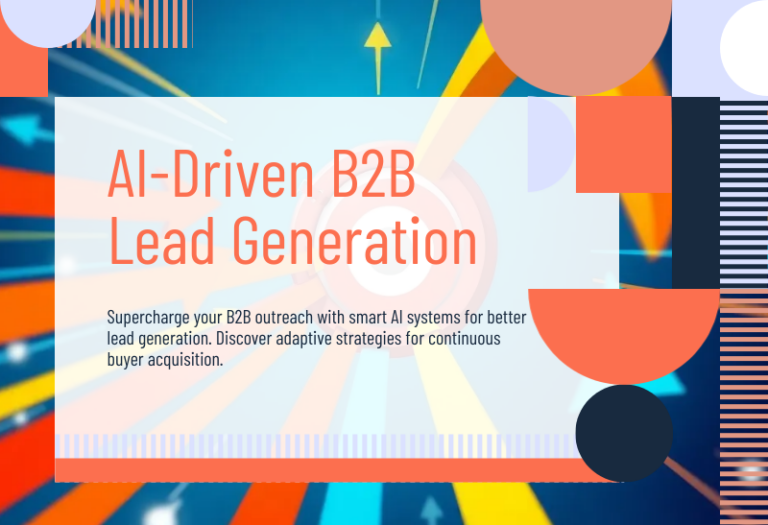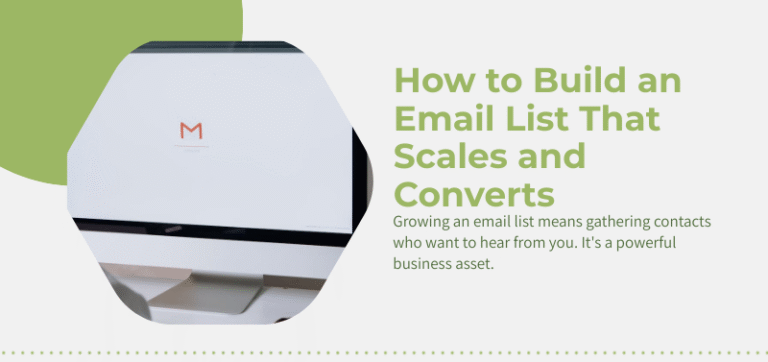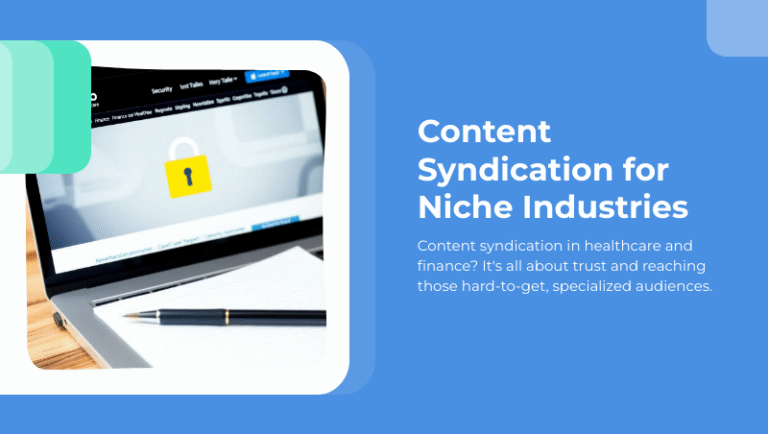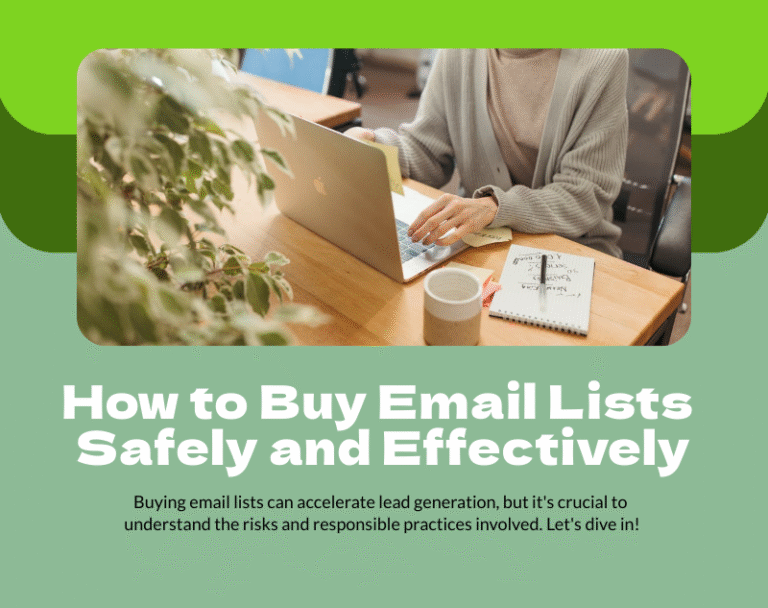Marketing requires proper attention in every business. Advertising is key when developing a solid client base regardless of your brand and business. Internet marketing means many brands appear online and offline. Some businesses stick to traditional marketing strategies such as print ads, broadcasts and referrals while others have shifted to digital marketing. Others seek to strike a balance between traditional and digital marketing strategies. It is vital to assess the impact of B2B lead generation, regardless of the marketing channels you’re using.
For any business to grow, it needs more clients. Effective lead generation tactics translate directly into more clients, which gives you room to grow. Digital marketing ignores physical boundaries and takes your brand to a global audience. By contrast, traditional marketing techniques target a focused audience in a specific region. Brand knowledge is therefore restricted to particular people living in a certain geographical region.
Relationship Between Digital Marketing, Traditional Marketing & Generating B2B Leads
Before you get to know main B2B lead generating tactics, it’s important to note the difference between traditional marketing and digital marketing and their importance in lead generation. Traditional marketing is often defined by the 4Ps: Product, Place, Price and Promotion. It involves identifying the right group of consumers, studying their behavior and providing them with the corrective incentives to get them to purchase a product. It includes any form of advertising or promotional campaign such as flyers, newsletters, billboards and print ads. Some other forms include TV and radio spots.
Digital marketing is online-based marketing that includes search engine optimization (SEO), pay-per-click advertising (PPC), social media, blogs and video channels. To market your products successfully, both of these techniques are vital.
To understand how these marketing strategies work together in generating leads, it is important to understand the ways in which you can generate B2B leads without having to hassle potential buyers or your marketing team. Below are core B2B lead generating tactics.
1. Social Media
Social media is a type of digital marketing, and it concentrates more on promotion of brands via Facebook, Twitter, LinkedIn, Instagram and other popular social media channels. With this type of marketing, firms can work on their marketing techniques in real time. Businesses using digital marketing can give relevant information to prospective clients globally and in real time.
Social media marketing is important to advertising a product when you’re targeting a larger client base. With social media marketing, traditional and digital forms of marketing work hand in hand for effective lead generation. There is no reason for any firm to stick to one marketing strategy; firms should leverage both for optimal business growth.
Using Facebook, Twitter, YouTube, websites and blogs to market products is independent of company size. Small businesses enjoy the same marketing strategies and potential audience size previously accessible only to big companies using print, TV spots and national ad campaigns. Brands compete fairly based on price, usefulness, service and other differentiators. Social media marketing has become familiar to buyers. Many leads are accustomed to asking their friends and business associates about buying decisions with social media.
To generate leads via social media:
• Direct social media users to your business site
• Create links for signups on your Facebook page or LinkedIn profile.
• Use a proper call to action.
2. Use a Reliable and Consistent Marketing Plan
Before releasing an advertisement for print in a newspaper, marketers typically do a comprehensive review. This ensures that the consumer gets the correct information. Also, emails and other forms of communication between a company and the consumer are kept confidential. Confidentiality and protected communications avoid negative publicity, a growing concern for businesses marketing their products over social media.
Consistent marketing plans are formal and direct. Customers and other stakeholders can sue a company if the information on certain advertisements is considered misleading. Therefore, with this assurance, consumers trust more in information presented on real time marketing platforms than those presented online. From a liability standpoint, going cheap is expensive.
Advertising over traditional marketing platforms usually comes with greater costs. This is the main reason why many business owners have shifted to cheaper online marketing. TV spots or even brochure printing may be beyond the reach of many small businesses. Traditional marketing is common with big and multinational companies such as Coca Cola. Small businesses have responded well to the more economical options inexpensive digital marketing provides. Effective lead generation depends on developing a marketing plan that reaches your target market for the highest ROI.
While traditional advertising can have tremendous reach, it has its drawbacks. Consumers have limited opportunities to ask questions about the product advertised using traditional techniques. Prospective clients who have some doubt aren’t able to test the advertised product. With Internet marketing, consumers are able to interact with your PR or sales team in real time. They get answers and can make an informed decision before purchasing the product.
3. Provide Free Stuff for Your Target Audience
You will achieve more measurable results when you market your line of product over the web, but you’ll create leads when you offer free stuff like e-books, coupons and promotional items. Since Internet marketing is cheaper, you can try many forms of online marketing techniques without straining your budget.
Marketing using the Internet means you have a global audience. With proper shipping and online forms of payment such as PayPal, business transactions online are easier than ever. Your local business can become a global enterprise with a single effective marketing and lead building campaign. As you give out your free tools, product samples or information obtain an email address from your clients in exchange. This data, along with referrals, is the life-blood of your lead generation strategy.
Promotions work with both online marketing and traditional marketing as they reach both the business market and the consumer market. Offer promotions after studying the type of people who consume your brand to attract similar leads who are better candidates to nurture into customers. For both business-to-business and business-to-consumer marketing strategies, you can choose a blend of traditional and digital marketing for generating leads after clearly defining the needs of the market.
Unlike other forms of lead generation where you must outsource assistance, you can execute some lead-building strategies on your own with content marketing. However, for intensive lead generation, trust your SEO, video marketing and affiliate marketing to professional content creators who understand the marketplace. You might opt to hire an agency to execute your lead generation strategy.
Even if you don’t sell your brand online, your company’s online presence is important. Regularly updated and well-designed websites work well to promote the development of a brand. Proper digital marketing strengthens the visibility of your business, which will in turn generate more leads. Eventually, your online content also builds authority which helps develop trust with prospective clients.
4. Automate Every Step
Poor management of your brand’s image on social media, blogs and forums may lead to negative publicity. Engage consumers interactively so prospective clients get the answers they seek in real time. You probably know how internet is viral and the effects of negative perception on your brand. Fortunately, you can avoid this by analyzing comments made by various people regarding your product.
Marketing automation ensures that you give your potential clients current information in real time. Local branding and advertisement are important for reaching local clients. Potential clients who will eventually test your product will be the first people to post good comments about your product over the social media and in your website. The prospective clients outside your region need assurance from these local clients who have used your product.
Employing these four strategies together is important for brand development and ultimate growth of sales. Both approaches involve building and cementing a trust relationship between the business and the consumer. These strategies are dependent on each other so that a brand reaches the right audience.
For both B2B lead generation, the range of communication channels and technologies that are available today allows them to send messages easily to potential clients at low cost. Combining marketing strategies helps these marketers deliver relevant messages in different environments. Because B2B marketing has specific needs, it’s especially critical to balance online and traditional marketing. Since the business market is convinced more by premium pricing than the consumer market, one can tailor ads such as TV spots to the business market. You can then use the Internet to reach the consumer market economically.
Benefits of Proper Lead Generation Strategies
In the past, lead generation channels were limited and isolated. Today diverse channels are linked together. The use of social and mobile media is largely interdependent, creating what marketers call “media convergence.” This makes lead generation more efficient when reaching the business and consumer market.
Customer behavior is fluid across various platforms, and as they move in and out of various blogs, websites, forums, social media and mobile media, they influence each other’s buying decisions. With effective lead generation strategies, buyers develop trust and influence others to test it for themselves. The result is that you’ll realize tremendous growth of your business.
The Bottom line
Having a system that works well for generating leads is critical to your company’s growth. It may sound complex, but professionals can manage your lead generation strategies efficiently. An agency knows the proper channels to use as well as the target audience. Have your lead generating strategies managed by an agency to optimize sales growth and maximize your return on marketing investments. That multi-channel relationship must be integrated with analytics that produce real-time data and monitor performance. Coordinating online, social and traditional channels is complex only across multiple platforms. When all these systems are integrated into your marketing automation software, you can boost brand awareness, generate leads and satisfy your clients easily across all platforms.
© Reach Marketing LLC 2015 All Rights Reserved.



